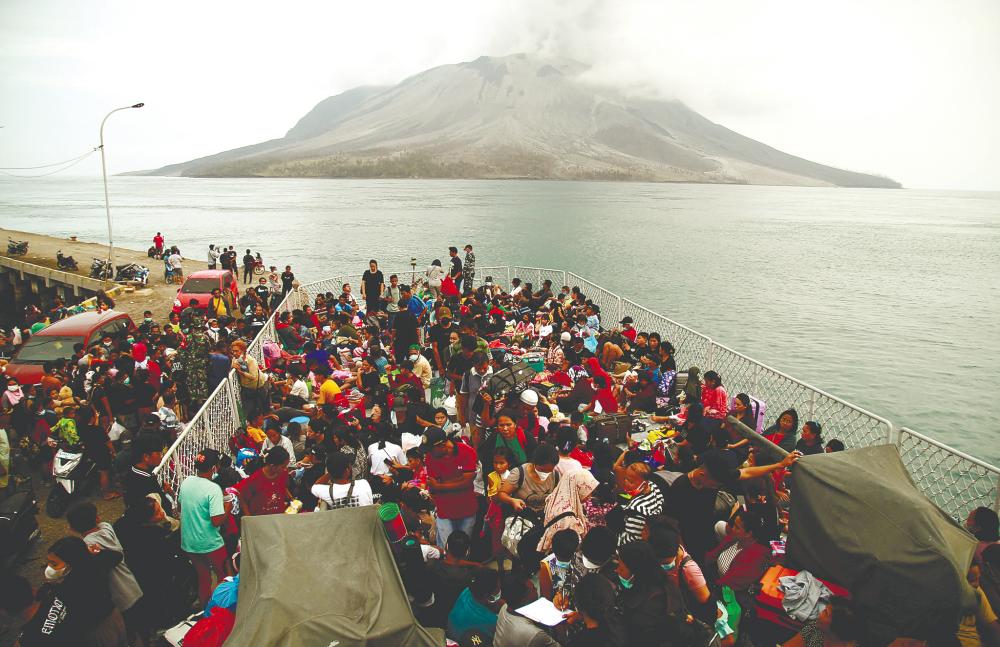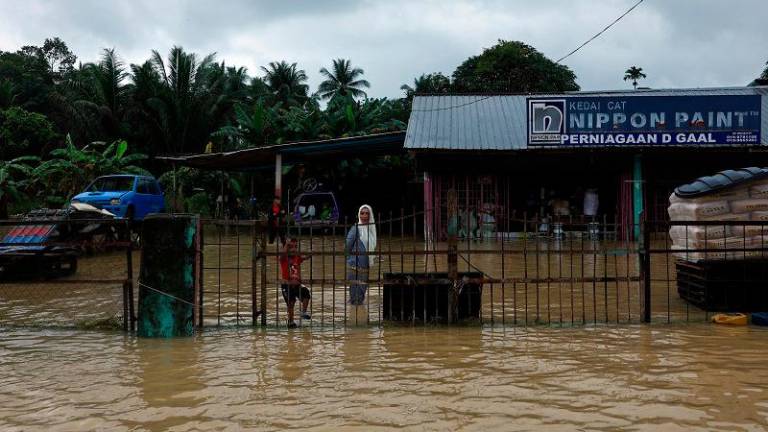PETALING JAYA: The public has been urged to stay indoors due to poor air quality resulting from another eruption by Mount Ruang in Indonesia on Tuesday.
The Meteorological Department (METMalaysia) has also issued a Significant Meteorological Information (Sigmet) warning to aviation operators due to volcanic ash entering Malaysian airspace.
Its director-general Muhammad Helmi Abdullah said volcanic ash poses a risk to aircraft safety and potentially disrupts flight operations within the Kota Kinabalu Flight Information Region.
“Based on trajectory models from the National Oceanic and Atmospheric Administration, the volcanic ash is expected to enter the country’s airspace and have a significant impact throughout the forecast period until May 5.”
He said METMalaysia, which is responsible for monitoring the movement of volcanic ash, will issue updated Sigmet notices as necessary.
ALSO READ: Mount Ruang eruption: Malaysia Airlines resumes some flights with new timing to Sabah, Labuan
“The public is advised to stay informed through notices released by METMalaysia via the myCuaca application and social media channels.”
Universiti Kebangsaan Malaysia Department of Public Health Medicine lecturer Assoc Prof Dr Mohd Hasni Ja’afar said those in Sabah and Sarawak, which is in the vicinity of North Sulawesi, should ensure proper ventilation, wear protective gear outdoors and maintain personal hygiene.
“Special attention should be given to vulnerable groups such as children and the elderly, with prompt medical attention for any respiratory or dermatological symptoms.”
Mount Ruang had spewed a vertical column of ash up to 5km into the sky on Tuesday, with its eruptions observed up to 20km away. The incident prompted Indonesian authorities to evacuate 12,000 residents.
The eruptions also hastened health alerts in Sabah and Sarawak due to health and environmental concerns. Coordinated efforts were also carried out to mitigate risks and safeguard affected communities and ecosystems.
Mohd Hasni said the volcanic activity could also trigger earthquakes, wildfires, mudslides, contaminate water sources and pose health hazards to the communities in the vicinity.
“Dispersed ash from the eruptions contain high levels of particulate matter, silica, sulphur and various minerals, which pose respiratory and dermatological risks.
“Unlike haze from forest fires, volcanic ash is finer and can penetrate deep into the lungs, potentially leading to respiratory diseases such as asthma and silicosis.”
He said breathing ash could irritate the throat and lungs, causing coughs and shortness of breath. It could lead to long-term lung issues.
Universiti Malaya Institute of Ocean and Earth Sciences senior research fellow Prof Datuk Azizan Abu Samah said the eruption could impact marine ecosystems.
“While ocean currents are generally unaffected by volcanic eruptions, the transport of volcanic dust into the ocean could alter marine habitats and trigger ecological changes, particularly along the coastlines.
“Currently, the main effects are expected to be felt in the area near Sulawesi, particularly in northern Sabah.
“A major concern is the possibility of more nutrients entering the sea, which could raise its content and lead to an overgrowth of algae causing algae blooms.”
Azizan said algae blooms consume oxygen and block sunlight from entering underwater, hindering the survival of coral reefs and aquatic plants.
“Sensitive marine ecosystems may suffer as thick layers of volcanic dust smother corals and harm calcium carbonate-based organisms such as shellfish.”
Azizan stressed the frequency and duration of the eruptions will determine the recovery time for affected marine ecosystems and it could take weeks.
“North Sabah may experience a surge in nutrient levels and alteration in pH levels while winds could transport the ash to other areas.”










